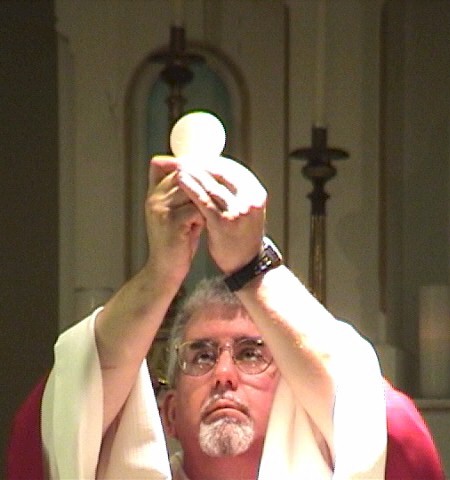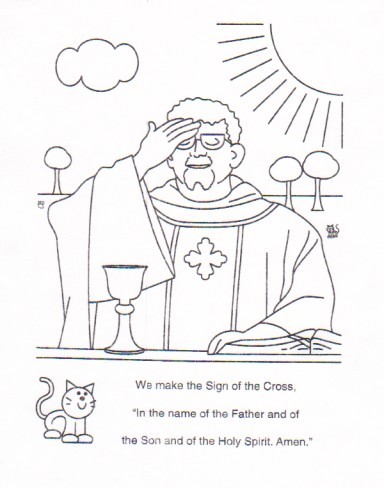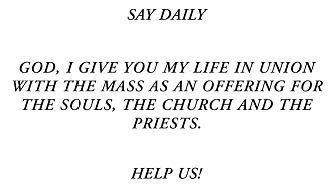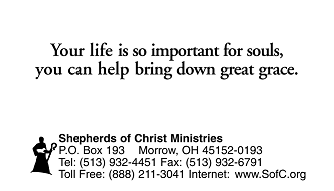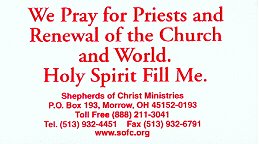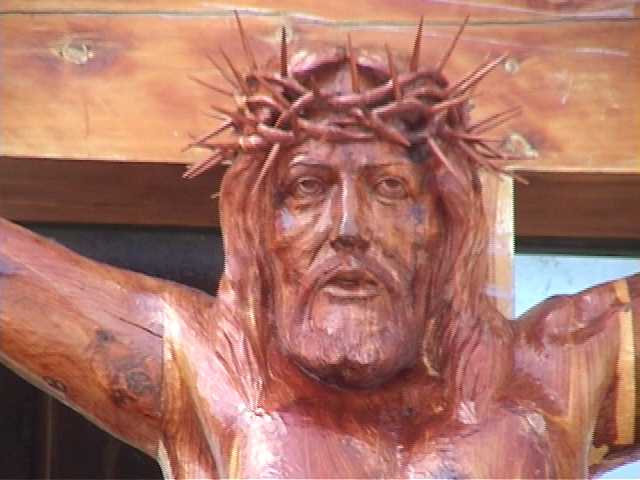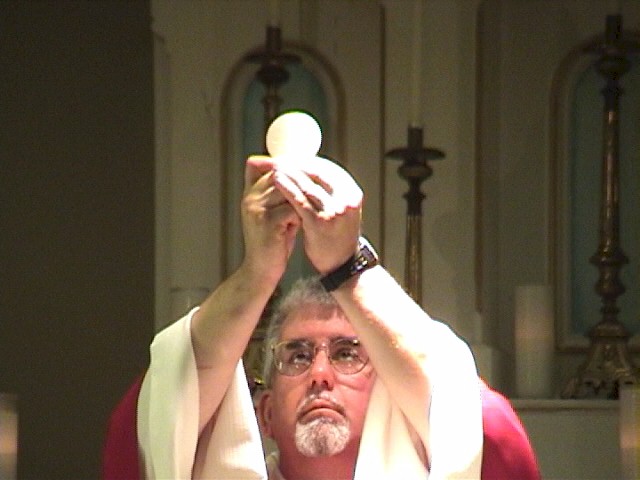Our incorporation into the mystery of Christ at baptism initiates us into a
life that God intends to develop into full maturity. Our life in Christ as
guided by the Spirit is not a static given, a life that is received in baptism
and then simply clung to. It is not a life that we are merely to avoid losing
through serious sin. Rather, it is our task to develop this life through a
process of evolutionary growth. God has truly placed us in a situation of becoming.
Our personal uniqueness is meant to gradually unfold into its full stature in
Christ as we increasingly fulfill God's will in deepening faith, hope, and
love.
For each individual,
the process of becoming is intertwined with God's plan of growth for all
creation. To understand the individual Christian's situation as one of
process, of becoming, it is obviously helpful, then, to realize that he or she
is part of a larger picture of becoming. Consequently, let us consider three
aspects—the world, the Church, and the individual Christian—all of which
are in a state of becoming.
The swirling pace of
today's rapidly changing world is unavoidably evident. If we were tempted to
think all this change might be an illusion, however, there are statistics to
assure us that today's world is indeed undergoing change—or process—at
a phenomenal rate. Some of these statistics include the following: Before the
year 1500, Europe published 1000 books per year; by 1950, the rate had swelled
to 120,000 per year; by the mid-1960s the overall world figure was 1000 titles
per day. This affords us some idea of the vast knowledge explosion that
has characterized our times and, indeed, is one of the most important
influences in our fast-changing society. The following is another statistic: A
period of 5000 years elapsed between the first shoeing of a horse by a
blacksmith and the first guiding by an engineer of a different kind of
horse—the iron horse, or locomotive; only 170 years elapsed, however,
between that first locomotive engineer and the first jet pilot who shattered
the sound barrier. These are a few of the numerous statistics that could be
cited to demonstrate that our world is in rapid process.
The Church herself
attests to a world in a state of profound becoming. Vatican II has stated:
"Today, the human race is passing through a new stage of its history.
Profound and rapid changes are spreading by degrees around the whole
world" (The Church in the Modern World, No. 4); and, "Thus,
the human race has passed from a rather static concept of reality to a more
dynamic, evolutionary one" (No. 5).
God has called mankind
to collaborate with him in the unfolding of creation. The fact that God has
placed a creative urge deep within mankind is evidenced by the myriad
achievements of the human race in the areas of science and technology, the
humanities, art and culture, government, and so forth. Men and women
constantly surpass themselves in what they are capable of achieving. Not too
many years ago, landing a man on the moon was not even considered a serious
possibility; now, however, it is just as possible as a jet flight to Paris.
Contemporary mankind's capacity to develop the material world and other
aspects of the temporal order is such that it staggers the imagination and
makes one almost dizzy in an attempt to keep abreast of the latest advances.
This evolutionary
process of the world, and the human capacity to increase its almost torrid
pace, cannot be questioned. The fact that this capacity is a God-given talent
likewise cannot be questioned. What can be questioned, however, is whether
contemporary men and women will properly use this gift and thereby assist the
temporal order to evolve to the authentic good of all mankind.
Today's Christian must
take inspiration from the following words of Scripture:
Jesus replied, "Scripture has it:
'Not on bread alone is man to live
but on every utterance that comes
from the mouth of God.' "
—Mt
4:4
Jesus reminds us that we must keep material progress in proper
perspective. The material universe is a gift from God that is intended to
serve men and women in the quest for their temporal and eternal destiny, a
destiny that is centered in mankind's spiritual nature. To say this is not to
falsely dichotomize humanity or to deny the bodily dimension; it is merely to
insist that the total person is meant to be controlled by his or her spirit
and, from this spiritual nature, is actuated to be—and to become—what the
Creator has designed.
Human history is
replete with examples of how men and women have, at times, abused material
progress. An ungodly desire for the material has been the cause of unjust
wars, murders, thefts, cheating in business, and the destruction of families
by greed. The list could be extended, of course, but one final observation is
sufficient, namely, that men and women have often allowed the inordinate
desire for material gain to quench their innate desire for spiritual values.
As often as men and women have done so, they have sold their souls for swine
husks.
Christians can be a
force in properly shaping the temporal order in its state of becoming. By
carrying Christian principles into the marketplace, Christians can help
correctly direct the material world in its evolution. Christians cannot afford
to be thwarted by temptations such as, "What's the use? What difference
does it make what I do or don't do?" The contemporary examples of certain
groups or individuals who have had a profound influence on society by bringing
to light injustices and deficiencies in the present structure of things have
become legion. What is more, the efforts of these groups and/or individuals in
actually achieving a change for the better is also a matter of record.
Likewise, each Christian, in some way or another, can also be effective if he
or she is willing to pay the price. The fact that his or her influence may
often remain a very hidden one does not make it less effective.
The Christian, in
fact, has a duty to help properly shape the temporal order in its process of
becoming. The Christian also has a duty to witness to the ultimate point of
destiny toward which this process is evolving—the omega point who is Jesus
himself, the center and culmination of all human history. Through the
Christian's proper encounter with the world in process, he or she is supposed
to be a reminder, as Christ himself was, of the world's ultimate outcome in
its evolutionary thrust. This final point of the world's development will be
the entrance of the temporal order into the eternal age of things; the world
will be swept up by Christ in his second coming and will remain, for all
eternity, in the transformation that it will receive at this parousia.
In giving this
particular kind of witness to the world in process, the committed Christian is
a reminder, however silent, that, despite mankind's greatest genius, the
secular order cannot develop into a Utopia on earth. People have so often had
the false expectation that a secular city can be established that will amount
to a heaven on earth. So long as people persist in such unrealistic
expectations, they will be disappointed. It is interesting to speculate
whether those who are living today, surrounded by the material comforts and
advantages of an incredibly advanced technological age, are really any happier
than those who had lived in ages when these material advantages were absent.
If present material progress has not brought men and women closer to God and
to one another, then it surely has not made them authentically happier. Yes,
the temporal order is surely meant to evolve for the sake of our greater
happiness; however, the temporal order can only evolve properly and thus
achieve its true purpose, if it refuses to be closed in upon itself in an
attitude of absolute autonomy. Rather, the temporal order can only achieve its
true purpose if it opens up in evolutionary process to its God and to the
God-intended completion of its evolution that is in the eternal order of
things.
As we turn our
attention to the Church, we again encounter the reality of becoming. In the
post-Vatican II Church, we are all well aware of a Church that is in process,
a Church that is reaching out toward that which is yet to be achieved, toward
that more perfect realization of the ideal that Jesus has delineated for it.
The Church is a mustard seed that is meant to gradually evolve into that full
stature which Christ intends: "He proposed still another parable: 'The
reign of God is like a mustard seed which someone took and sowed in his field.
It is the smallest seed of all, yet when full-grown it is the largest of
plants' " (Mt. 13:31-32).
The concept of the
Church as a pilgrim Church is closely allied with the idea of the Church in
the process of becoming. The pilgrim Church is the fulfillment of God's people
from Old Testament times. Under the leadership of Moses, the Jewish people
traveled through the desert toward the Promised Land. The journey was,
however, not always a smooth one; there were sufferings, both physical and
spiritual, as well as numerous infidelities against God—which, occasionally,
were extremely flagrant violations of his covenant law. Good prevailed,
however, sufficiently for the promised goal to be achieved.
God's people of New
Testament times are also on the way; their Promised Land is the heavenly
Jerusalem. The distance thus far traveled, however, presents a mixed picture.
There has been a dark and ugly aspect of the Church's history; there have been
jealousies, for example, as well as power politics in high places, and
material greed; disloyal popes, bishops, and priests; laity who have, in
numerous ways, betrayed the name of Jesus in the marketplace; apathy and a
lack of concern for the world's problems.
This evil dimension of
the Church's history would be tragically disheartening if there were not a
brighter side, but, through the grace of God, the good in the Church has been
more powerful than the evil. There have been numerous martyrs who are definite
proof that Jesus' love for an individual, and that individual's love for Him,
can take such deep possession of the person that death, even a death that
might be exacted through the most horrendous torments, can be deemed a
privilege and even eagerly embraced as the passageway to complete and eternal
union with Christ. There have also been many men and women of all vocations
who wholeheartedly dedicated themselves to Christ and lovingly gave themselves
in service to mankind. It is true that the good they accomplished was
supported by both Christ's love and others' love for them, yet it was not
always easy. Disappointments, misunderstandings, periods of agonizing
suffering—these were also indelibly woven into the accounts of their lives.
The Church cannot
content herself with the good that her members have accomplished. The Church
is still in the process of becoming; she is still a participant in an ongoing
pilgrimage. Her members must have a spirit of openness, a venturesome
attitude; they can never afford to settle down in a posture of
self-satisfaction. There is still so much good yet to be accomplished. But how
is it to be accomplished?
We cannot be sure of
all the future possibilities for achieving the work that Jesus has entrusted
to the Church. Not too long ago, for example, how many would have thought that
the principle of collegiality would today be such a dynamic element in the
Church? That it is so is evidenced in many ways—through synods of bishops;
priests' senates; diocesan councils composed of laity, religious, and priests;
parish councils; and a more democratic process at work in religious orders and
congregations. This is not to say that the principle of collegiality is being
implemented in a perfect way; however, it is apparent that, relatively
speaking, the Church has made giant strides toward the ideal. As for
projecting into the future, however, we must be aware that there may be
completely new experiences for which the Spirit is preparing us. We cannot,
therefore, harbor a too static view of the Church. We should not think that
the more unchangeable the Church is, the better she serves her purpose. There
are both unchangeable and changeable dimensions of the Church. While we
loyally hold true to the unchangeable aspects, we must at the same time give
proper attention to the changeable dimensions. To do otherwise would actually
be to refuse to be open to the Spirit in a proper fullness. A Church in the
process of becoming—a pilgrim Church—must, then, balance her concern for
both the changeless and the changing aspects of her existence. Only in this
way can she be both stable and flexible enough to properly serve her own
members and the entire human race.
In discussing both the
world and the Church in a process of becoming, much has already been said
about the individual Christian's state of becoming, because the Christian's
life is inevitably caught up in the world's and the Church's existence. It is
well, at this point, to more directly consider the individual Christian as a
person who is in the process of growth, of becoming more what God destines him
or her to be.
We are meant to be in
a continuing process of becoming through a deeper radicalization of faith,
hope, and love. True, one dimension of the grace-life is the fact that it is a
stable given. It is not, however, a static given. We have to thrust toward
that which is yet to be achieved. We are meant to be in a process of becoming
the "more."
Full maturity in
Christ is not suddenly achieved. Even after a relative maturity is attained,
this maturity can always take deeper root. This gradual achievement in
spiritual maturity can be viewed as a process of self-encounter, a process
whereby we gain the proper, graced self-control amid many struggles. It is a
becoming through an encounter with the true self, through a gradual
achievement of that self-identity and uniqueness that God intends. This
becoming is achieved through a path of progress that is not always perfectly
upward: there is the reaching out for good, but also the succumbing to evil;
there is the discovery of strengths and talents, but also the painful
awareness of weaknesses and limitations. There are, in short, successes and
failures. There is joy—sometimes intense joy—over what is achieved in
personal growth; however, there are also periods of discouragement—sometimes
moments of near despair—because further growth seems impossible. All this
happens because the process of becoming has inherent within it a constant
newness that is linked to a certain sameness. We are always the same persons,
but always different persons, too.
Moreover, the process
of becoming through a proper encounter with the true self takes place not in a
vacuum, but rather, within the framework of an encounter with the material
world, with human persons, and with God. The encounter with the material
world—and, indeed, with the entire temporal order—is meant to be
characterized by a correct use of creation, by periodic renunciation, and by a
spirit of creativity. The correct use of material things enables the person to
grow by respecting the fact that the bodily aspect of his or her being has
situated him or her in a material world that is meant to serve the person's
needs. The fact that persons are in part material beings means that one aspect
of God's plan for men and women intends that they grow, that is to say, that
they become, through the proper encounter with, or use of, the material.
As long as men and
women are on this earth, there will always be in them both a sinful tendency
and a thrust toward good, and, consequently, they do not always properly
relate to the material. For an individual to achieve a correct use of material
things and other temporal values, he or she must periodically renounce them.
At times, becoming means not becoming in a certain way, not
encountering this thing or this value.
Also, the material and
temporal order offers wide possibilities for individual creative instincts. By
shaping the raw stuff of creation through the various uses of one's creative
forces, a person can become that which he or she was not. The imprint of one's
creative image where it did not previously exist is a reflection of a certain
development, or becoming, within the individual person.
As significant as the
encounter with the material world may be, however, it is obviously not as
important as the encounter with human persons. God intends that so much of our
spiritual growth occur as a result of our proper encounter with others. So
much of our growth toward mature personhood occurs in the give-and-take of
personal encounter. Until rather recent years, spiritual teaching placed a
great emphasis upon the correct performance of certain practices. That appeal,
however, did not always properly emphasize the fact that those practices were
important only to the extent that they deepened the Christian's personal
relationship with God and his or her fellow men and women.
The selflessness that
is required for authentic relationship to the other readily points out why
encounter with persons is such an important contributing factor to true
becoming. The Christian life is primarily a going out of ourselves to God and
to human persons. This transcendence of self is not always easily achieved,
however, precisely because it involves a process of overcoming the strong
thrust of selfishness. Although going out of self to God is obviously the
primordial relationship for the Christian, it is interesting to note that,
through the words of Scripture, God tells us that our relationship to our
neighbor is the criterion by which we are to judge our love for him:
If anyone says, "My love is fixed on God,"
yet hates his brother,
he is a liar.
One who has no love for the brother
he has seen
cannot love the God he has not seen.
—1 Jn 4:20
Going out to
others, serving them, being for them, and loving them is a dynamic process.
There is no set pattern that can perfectly serve all this. Surely there are
certain established Christian principles and truths that govern our
encountering and serving others; however, these truths have a certain
flexibility built into them so that they can be assimilated to meet the
particular situations of unique individuals. Our encounters with
others—whether it be a case of relating to a partner in marriage or to a
friend or to those who are recipients of our service or whatever—give proof
to each of us, according to his or her own experience, that there can be no
question of a static pattern of behavior to govern personal relationships.
There is always the new, the unexpected, the surprising, or the significant
change in behavior that must be considered along with the more stable elements
that comprise personal encounter. Becoming by going out to the other truly is
a dynamic process.
If an individual
person grows toward Christian maturity through a proper encounter with
material creation and other facets of the temporal order, as well as through
encounters with others, individuals must especially grow, or become, through
an encounter with God. Growth through encounters with both material creation
and other persons is rooted in our maturing through the relationship with the
great source of all becoming—namely, God himself. He himself is infinite
being, and he constantly wants to communicate himself to us so that, drawing
from his infinite source of life, we might become more what we are meant to
be—more of what he desires that we become.
God draws us on to
greater fulfillment according to the pattern of Christ's example and teaching.
There is no other way according to which we progress to spiritual maturity.
There is no Christian perfection that we can acquire, no possible development
of our Christian personalities unless it occurs through Christ Jesus. The
Spirit, however, does not superimpose this pattern of Christ upon us in an
artificial way. The Spirit does not shape us according to the image of Christ
without deep concern for our uniqueness; we are all different, and the Spirit
supremely respects this fact. Furthermore, if the Spirit is of such an
attitude, so must we be; we must not box ourselves in, all trying to fit into
the exact same mold and maintaining that this is necessary because we must all
follow the same Christ. The pattern of Christ is the creation of an infinitely
wise God. He has arranged that the one pattern of Christ is also a pattern
that has as many possibilities for unique assimilation as there are individual
persons.
We all follow the one
and same Christ and we must all have an attitude of complete openness, of
expectancy concerning the unpredictable, an attitude that will allow the
Spirit to lead us according to his way of forming us in the image of
Christ. At times we might have a too minutely preconceived idea of how we will
become in Christ and we are, therefore, somewhat rigid about the whole
process. Although the following of Christ is basically the same for all, how
can we be sure what particular path of imitation—mapped out in rather
complete detail—the Spirit has prepared for each of us? We can certainly be
tempted to think that we know with considerable certainty the way in which our
becoming in Christ should logically evolve. We must learn, however, to balance
an attitude of stability that is rooted in a certain way of life, a certain
way of following Christ, with a spiritual freedom that makes us really open to
what the Spirit wants of us, however surprising, novel, or unusual this may
seem.
End of excerpt from Response to
God’s Love
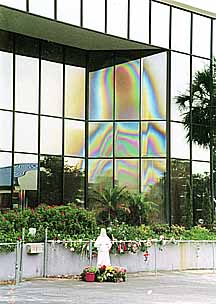
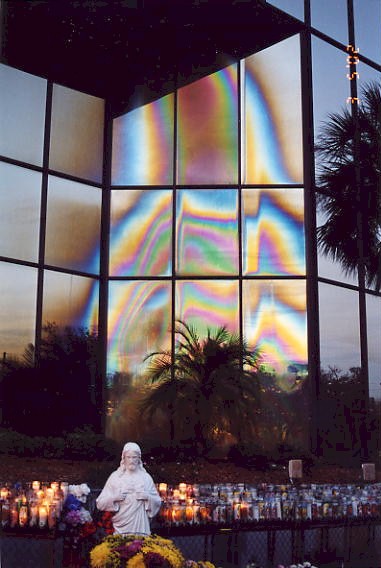
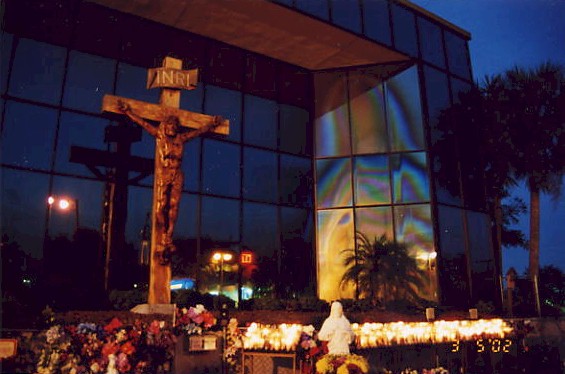
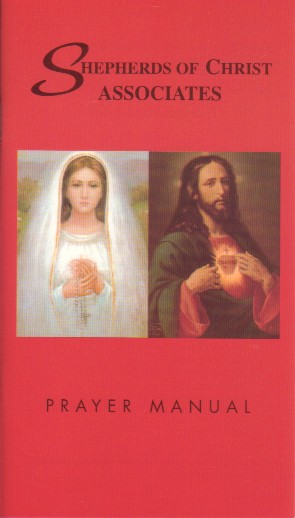
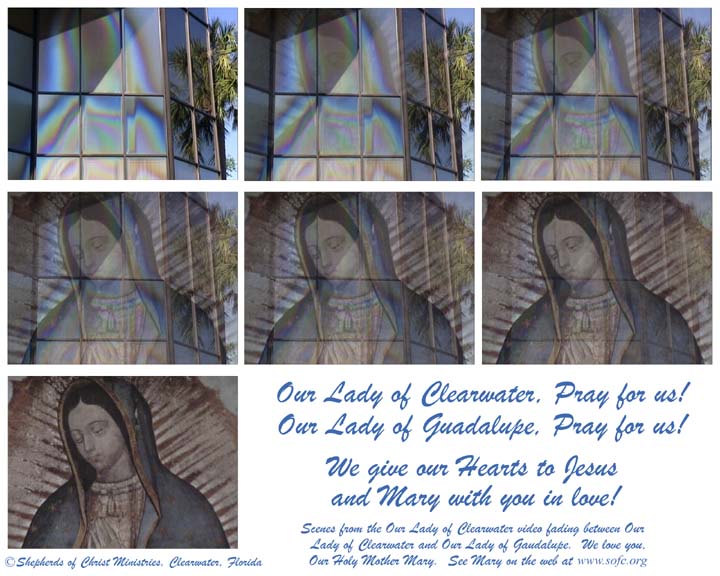

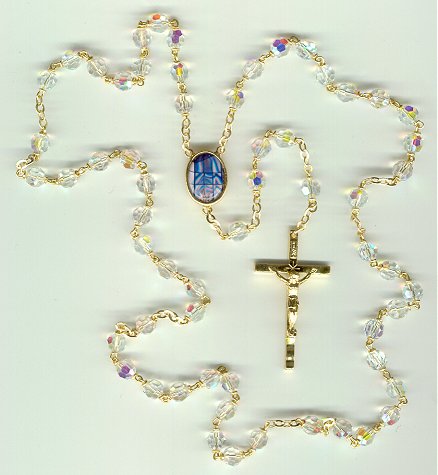
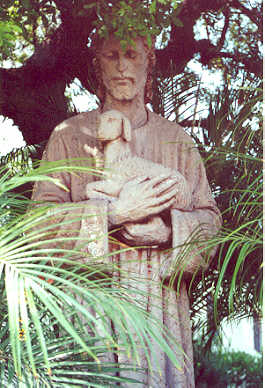 The
Son of God became Man for our salvation. Yes, He became incarnate. He took
to Himself a real human nature. Because Jesus possessed a real human
nature, He could die for us. As the Good Shepherd, He has laid down His
life for us, His sheep.
The
Son of God became Man for our salvation. Yes, He became incarnate. He took
to Himself a real human nature. Because Jesus possessed a real human
nature, He could die for us. As the Good Shepherd, He has laid down His
life for us, His sheep.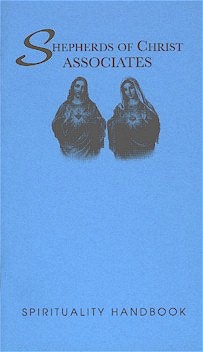
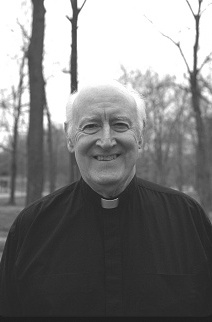 Some
day if we love and serve God we will be with Him in heaven. Our life is so
short compared to eternity. Here today, gone tomorrow. All that remains is
how we choose to live, for God or against God!
Some
day if we love and serve God we will be with Him in heaven. Our life is so
short compared to eternity. Here today, gone tomorrow. All that remains is
how we choose to live, for God or against God!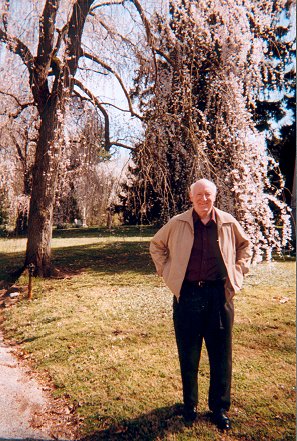 Sky
and earth will pass away, but my words will never pass away. (Luke
21:33)
Sky
and earth will pass away, but my words will never pass away. (Luke
21:33)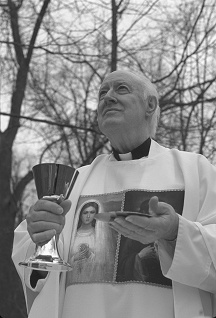
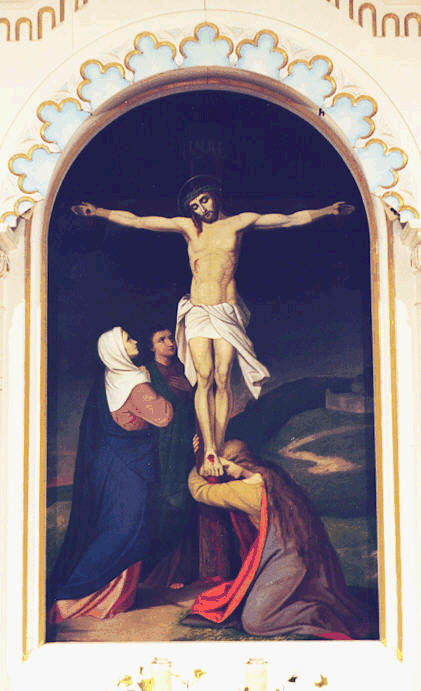 First
Friday, March 6, 1998
First
Friday, March 6, 1998 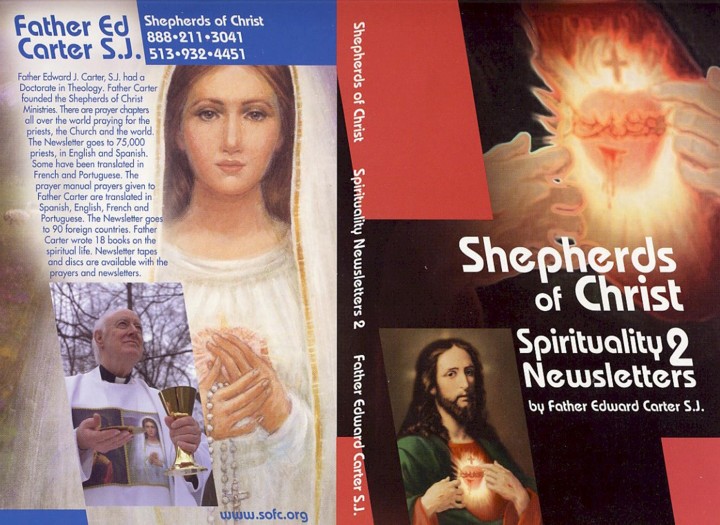
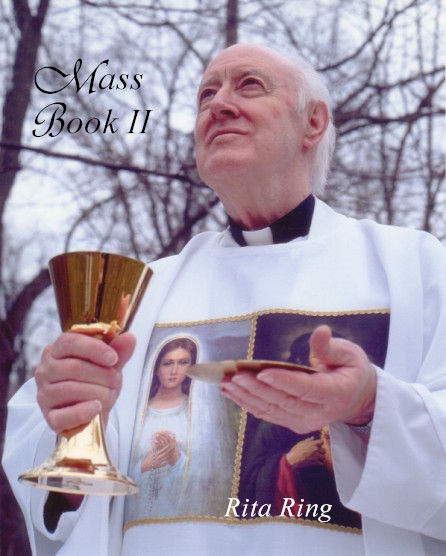



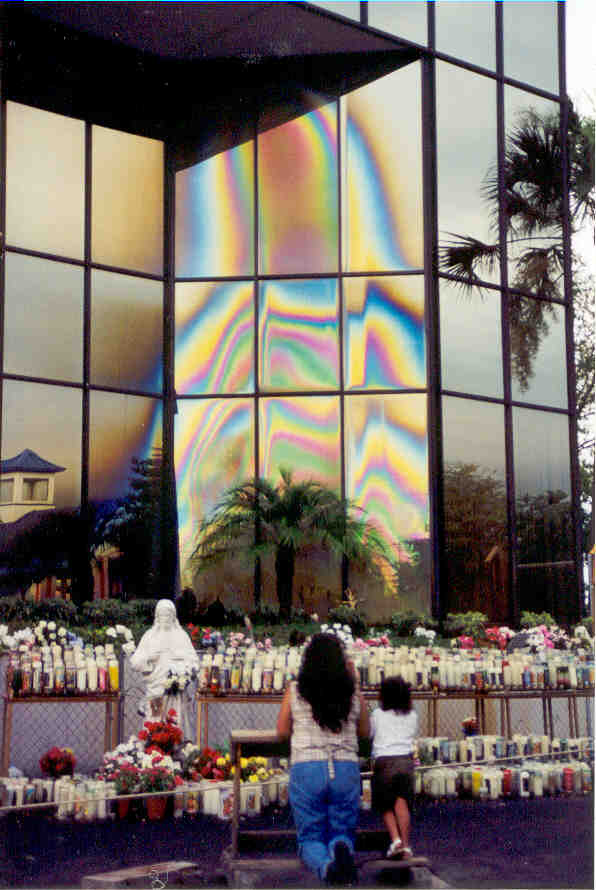
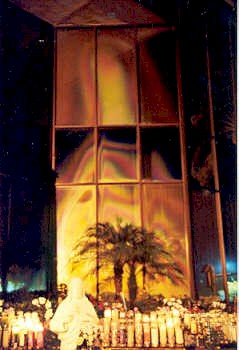

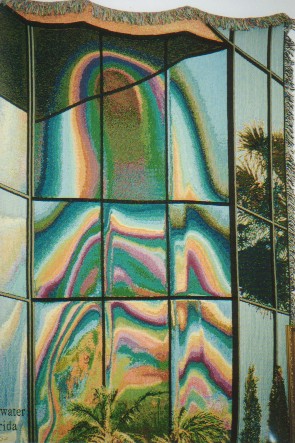
 Mary
talks to the Nursing Homes
Mary
talks to the Nursing Homes